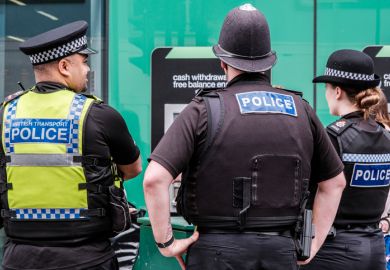Source: Getty
More than 12,000 international students may have lost places at UK colleges in a government crackdown on immigration fraud, according to a report that suggests few, if any, have had their fees refunded.
The Home Office action, which began in June when overseas recruitment was suspended at three universities and dozens of colleges, resulted in 65 private colleges losing their visa sponsorship rights.
Students who lost places included those with allegedly phoney English language qualifications, but also others who enrolled in good faith at an institution that lost its licence.
A sponsorship working group set up to assist genuine students was told that more than 5,000 people had been given 60 days to find a new place to study or to leave the UK.
However, a report from the National Union of Students claims that a “significant number” of students were “excluded” from the group’s remit, including those who attended colleges that had their licences suspended after June.
The real total of affected students was likely to be more than 12,000, the report says.
The NUS and others campaigned for these learners to be given more help in finding a new college, but a survey by the union of 288 affected students found that none had received a refund of their fees. This left them between £500 and £12,000 out of pocket.
Thirty-one per cent had been refused a refund and 14 per cent had been offered money back but were yet to receive it. Fifty-five per cent had not requested a refund – probably because their college had closed, the NUS said.
Most of the surveyed students (68 per cent) had not tried to find a place elsewhere, with financial problems considered to be a key reason for this. Twenty-five per cent had been refused a place to study, and 7 per cent were now studying somewhere in the UK.
Although an online service for searching courses was set up for affected students, this was not available until mid-November, some time after revocations started. Nearly half the places on offer did not start until the following year, the NUS report says.
A Home Office spokesman insisted that the formation of the working group had allowed the sector to assist innocent students.
Register to continue
Why register?
- Registration is free and only takes a moment
- Once registered, you can read 3 articles a month
- Sign up for our newsletter
Subscribe
Or subscribe for unlimited access to:
- Unlimited access to news, views, insights & reviews
- Digital editions
- Digital access to THE’s university and college rankings analysis
Already registered or a current subscriber?





